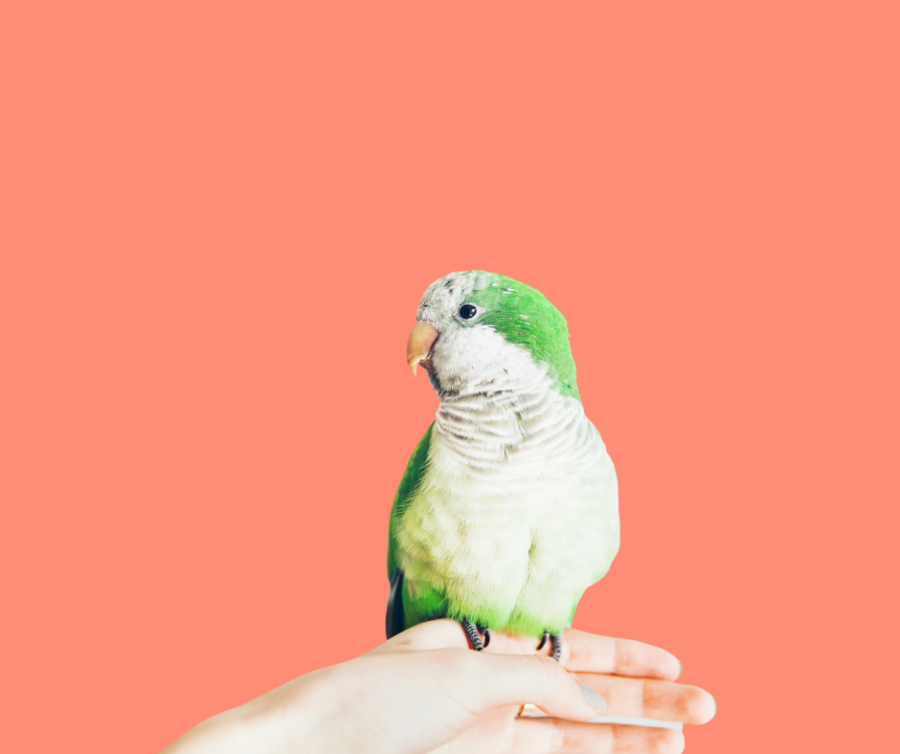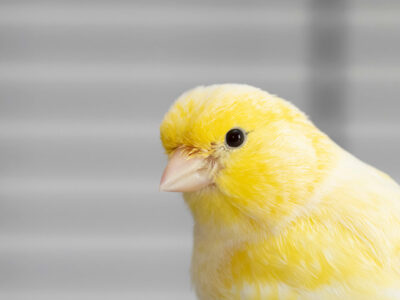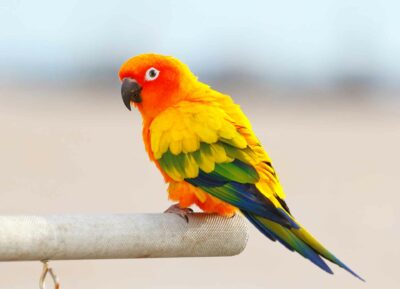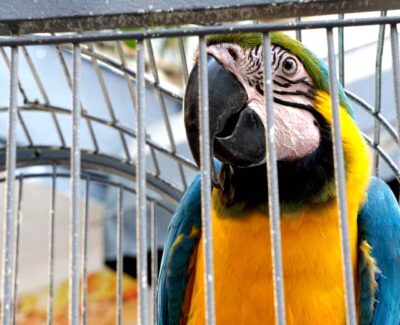
Quaker Parakeet
Check out our Quaker parakeet enrichment tool.
What Are Quaker Parakeets?
Quaker parakeets, also known as Monk Parakeets and Quaker Parrots, are found in South America, particularly in parts of Bolivia, Brazil and Paraguay. Their name comes from a common habit seen when they are young of bobbing and “quaking,” and their alternative name of Monk Parakeet refers to the plumage on their head resembling that of a monk’s hood. In the wild they are mostly green with contrasting grey on their chest and head, but those bred as pets can have blue or yellow colorings as well. They are known to be affectionate and intelligent birds, and their ability to mimic speech and sounds they hear rivals African Greys and other Parakeet species.
Quaker parakeets are also notable for having a large population in Brooklyn and other parts of New York City – these wild parrots are theorized to have escaped from JFK airport in the 1960s and now nest and roam throughout the city’s boroughs.
What Makes Quaker Parakeets a Good Pet?
As some of the most intelligent parrots, Quaker parakeets are quick to learn words and mimic sounds they hear in the environment. They are also noted for the remarkable clarity in accuracy of the words and sounds they can reproduce. Though often not as loud as Conures, once you get them talking it can be hard for them to stop!
How Do You Care for Quaker Parakeets?
Quaker parakeets can be very affectionate and sociable when properly trained, but still have a propensity for being territorial, so it can help to give them a lot of space to play and roam around in. Perhaps owing to their strong nesting instincts in the wild, Quaker Parakeets are often very particular about the layout of their cages – if they don’t like where you have placed something they will often rearrange! Giving them a lot of materials and objects to build and organize with is a good idea.
They are also notably illegal to own in certain states like California, Hawaii and Pennsylvania, and several other areas limit the numbers that can be owned as they are considered to be an agricultural threat if they escape. Owners looking to add these birds to their home should be aware of local regulations to make sure there are no issues regarding having them as pets.
Follow us on Facebook and Instagram, and be sure to check out our other posts about birds or take our quiz to see which types of birds may be right for you!





